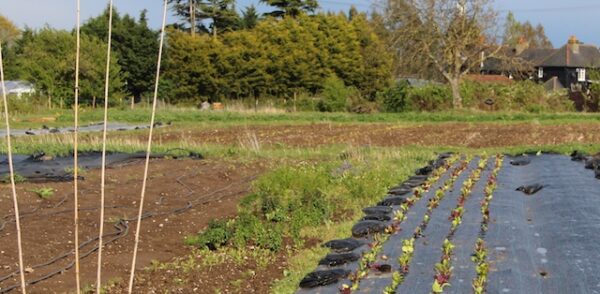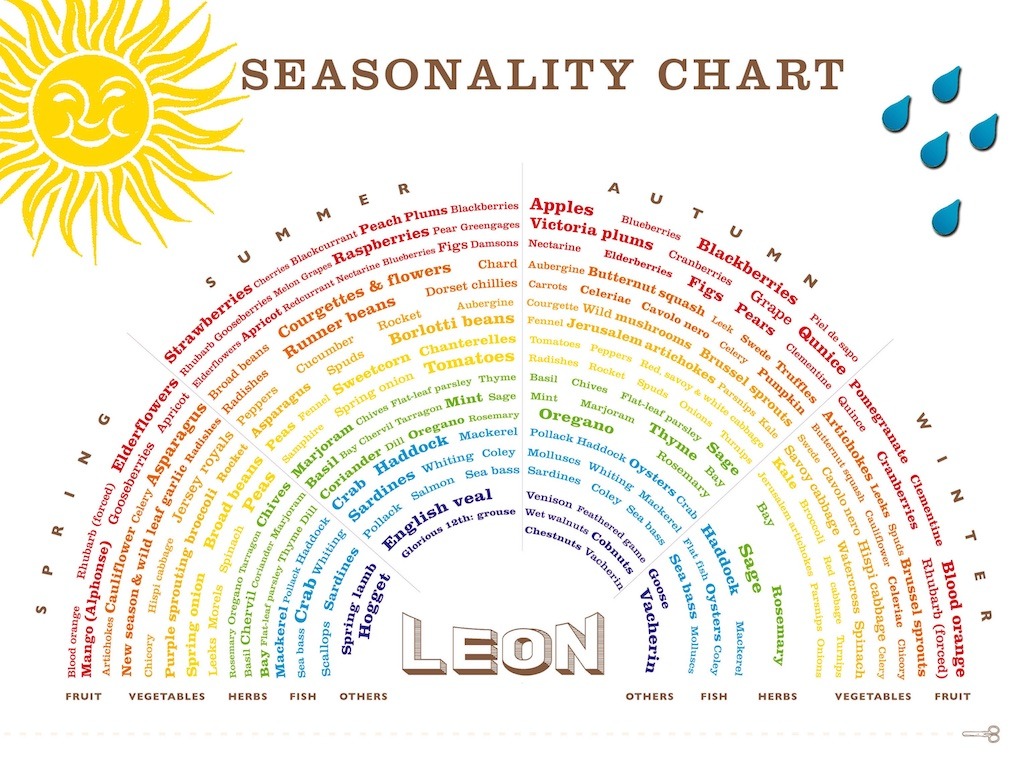
The sun is starting to shine and our countryside is stirring into life. However for UK growers, the next two months is our least productive period. Our remaining winter crops are finishing (kale, most of our salad, leeks, broccoli) and supplies of staple crops from the farms we partner with are starting to dwindle while we wait for our new season of crops to come to fruition.
This “hungry gap” can easily be missed on a trip to the supermarket where the shelves are stocked to abundance. As well as the environmental cost of flying in out-of-season crops, many of the veg are bred to cope well with haulage transport and to remain visibly ‘ripe’ for longer, at the expense of taste and nutritional quality. In a recent article about food industry production wizardry, Joanna Blythan explained one method that the food industry uses, which is to dip fruit and vegetables in a special solution that can prolong their shelf life for 21 days. Such chemicals are defined as “processing aids”, not ingredients and therefore do not need to appear on the label. I’m not taking a position on whether this is right or wrong, however I like to know where my food comes from and believe there needs to be more transparency in the industry.
Some UK growers will bridge the gap with energy-hungry heated greenhouses. This isn’t something we do. Our priority is to give you the very best UK seasonal produce, grown locally and sustainably, and we will work as hard as we can over these next two months to bring this to you. We believe that the “hungry gap” is just as exciting for tasty food as any other time in the year. So please stick with us and let’s work together to eat as much as we can, within the seasons.
What can we expect on the farm soon? We’re looking forward to green garlic in the next few weeks, then as we move out of the hungry gap, we will have broad beans, courgettes and peas. Over the next few weeks, we’re clearing our polytunnels, ready to plant out our tomatoes, which is always my favourite crop of the season.
To learn more about our crop rotation, take a look at our farm design page. For seasonal eating, there’s lots of helpful advice out there. We suggest eatseasonably.co.uk as a starter.
Written by Samuel Smith, General Manager. 5 May 2015.
